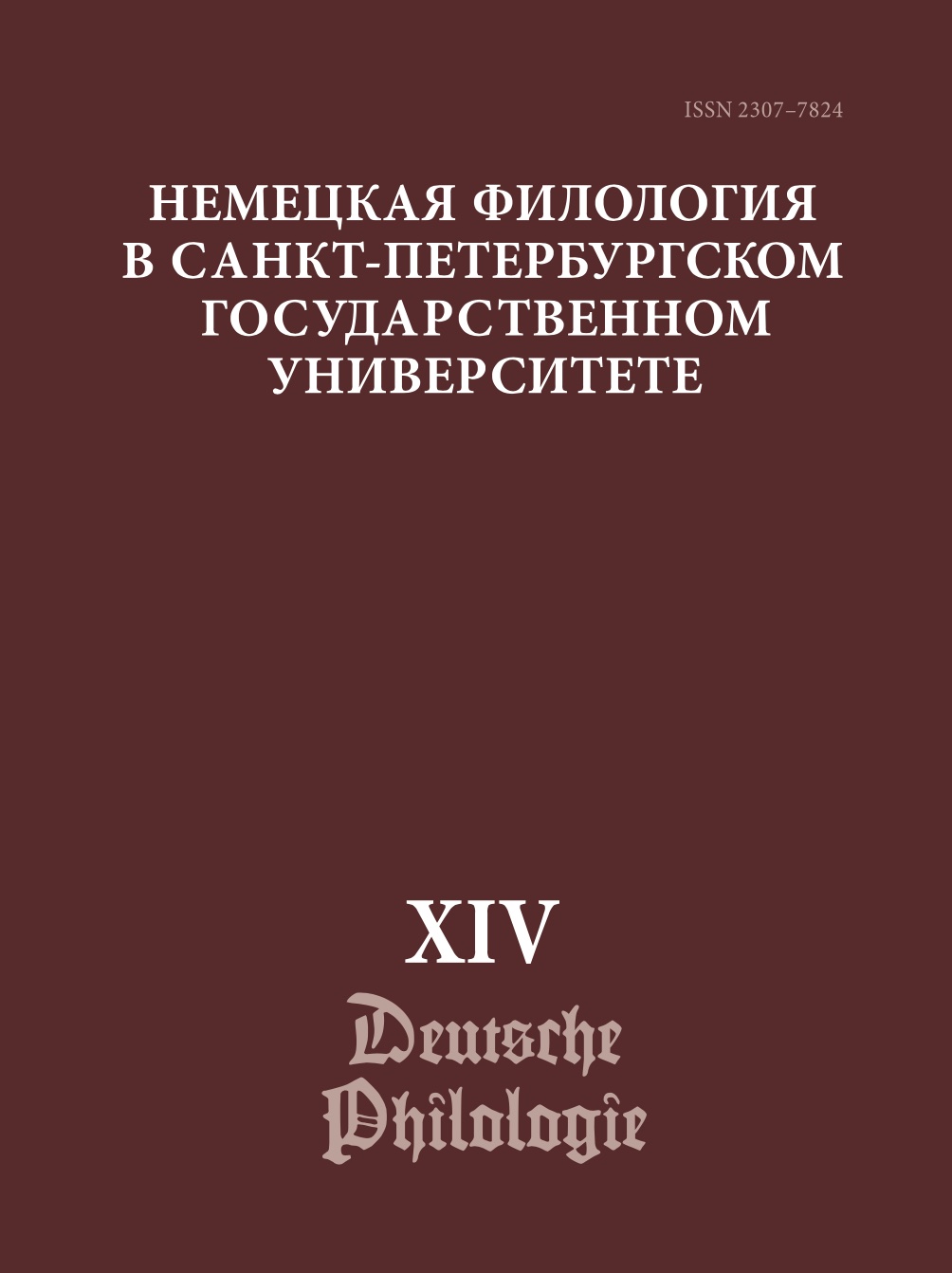METHODS FOR APPLYING THE POSSESSIVE CASE IN THE GERMAN LANGUAGE THROUGH DIACHRONIC JUXTAPOSITION
DOI:
https://doi.org/10.21638/spbu33.2024.102Abstract
The universal notion of possessiveness is a fundamental category within the language-based world perception and reflects the personal space, objects and phenomena of which are in relationships of alienable or inalienable possession by the subject. Following the theoretical principles of St. Petersburg Functional Grammar School, the researchers interpret the possessive case semantics implementation at grammatical and lexical-semantic levels. This functional-semantic field of possessiveness is interpreted as a binary structure characterized by diverse reflections of reality, namely attribution and predication. This study’s purpose is to identify and describe grammatical, lexical, and semantic features of attributive and predicative constructions establishing the possessive relationships between animate/inanimate possessors and their objects diachronically. Researchers studied textual fragments of various genres (ancient Germanic folk epic poem, Harmony of the Gospels, the poem about the Last Judgment, an excerpt from the Book of Genesis, and heroic epic) from Old Upper German, Middle Upper German, and Early New Upper German periods. The analysis demonstrates the possessive case methods in all German language historical periods presented through attributive and predicative constructions. Attributive constructions constitute the core of the functional-semantic field, while predicative possessiveness is represented by isolated cases of verbs denoting static and dynamic possession. The choice of attributive means reveals dependence on the noun semantics, and the frequency of use reflects the fundamental trends in the German language’s grammatical structure development. As for possessive relationships and their frequency, genre-specific characteristics of the textual fragments determine the situation types. The study’s methodology includes the comparative method and contextual analysis.
Keywords:
possessiveness category, ownership, possession, attributive possessiveness, predicative possessiveness
Downloads
References
Литература
References
Downloads
Published
How to Cite
Issue
Section
License
Условия передачи авторских прав на статьи и рецензии, опубликованные в ежегодном периодическом издании «Немецкая филология» регулируются условиями Лицензионного Договора автора с Санкт-Петербургским государственным университетом. В соответствии с Лицензионным Договором опубликованные материалы находятся в открытом доступе, а авторам бесплатно предоставляется неограниченные возможности их распространения и самостоятельного архивирования.




